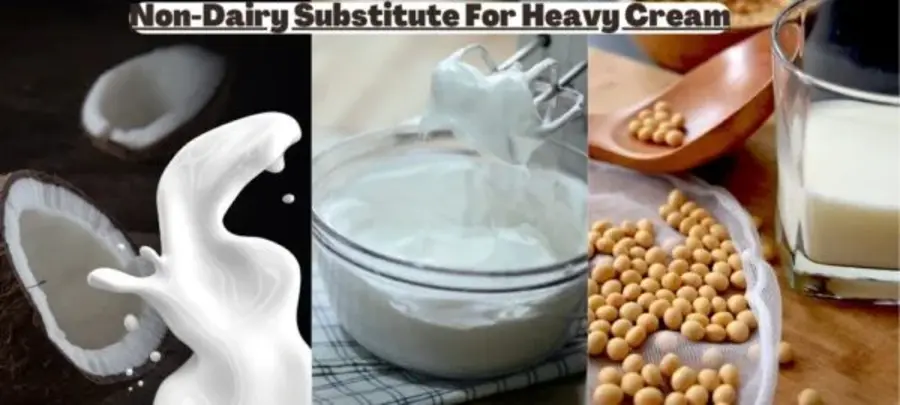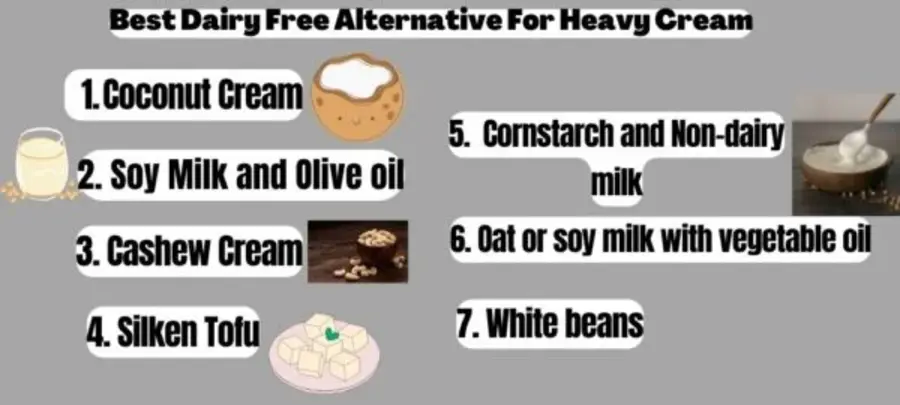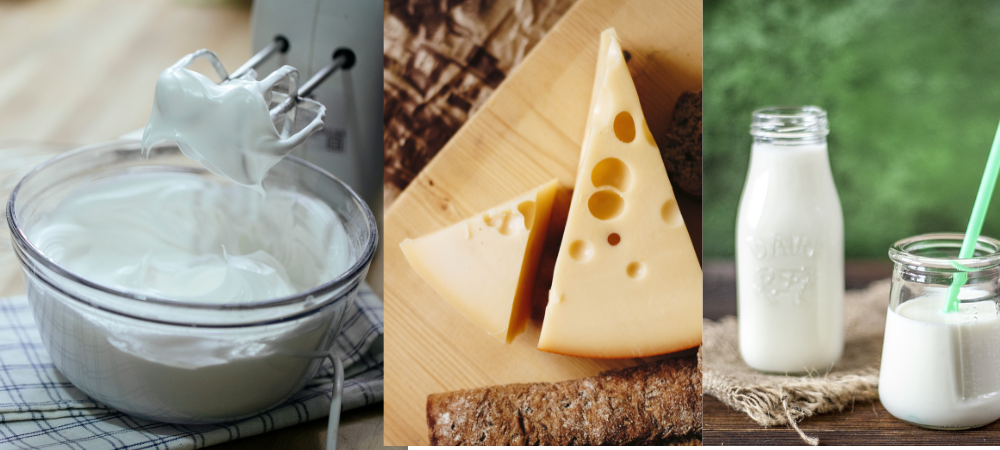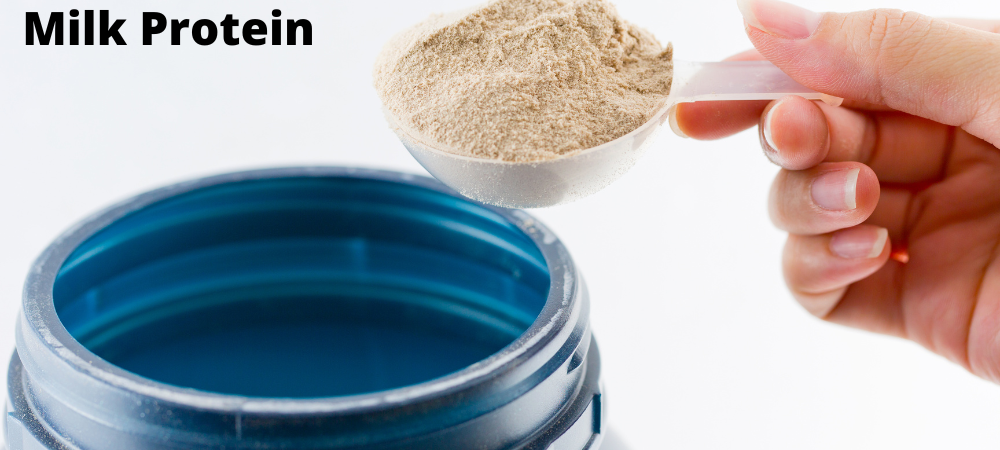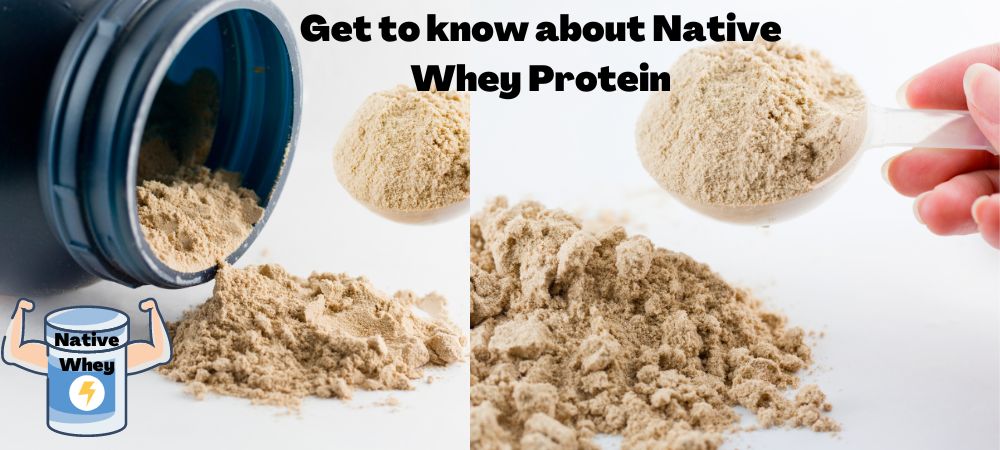Heavy cream, sometimes known as heavy whipping cream, is a rich and creamy dairy-based product. It adds texture and flavor to a wide range of recipes, including soups, sauces, sour cream, butter, and other cooking and baking products. However, there may be times when you are looking for vegan or non-dairy substitutes for heavy cream, whether due to dietary restrictions (i.e., lactose intolerance) or personal preference.
In this article, we will explore some of the best non-dairy substitutes for heavy cream that can serve the same purpose and can be used for various recipes.
Soy Milk and Olive Oil
Soy milk is a vegan and dairy-free alternative to heavy cream. Originally, soy milk is known for its vitamins, proteins, mineral, omega-3 fatty acids, and antioxidant contents (1).
However, it needs to be mixed with olive oil to get better results. This is because olive oil adds fat to soy milk for flavor, making a product that has properties like heavy cream.
If you want to make a dairy-free substitute similar to 1 cup (237 mL) of heavy cream, you need to mix one-third of a cup of soy milk (159 mL) with one-third of a cup of olive oil (79 mL) (2).
Soy milk-based substitutes can be used in various recipes like soups and sauces. But, it is not as creamy as heavy cream due to the low-fat content of soy milk.
Therefore, it is not a good substitute for recipes where whipping is required. Still, it is perfect for adding tenderness and taste in baking and cooking.
Coconut Cream
Coconut cream is a versatile ingredient made from popular coconut milk. It is a dairy-free and vegan product and is an excellent choice to replace heavy cream. This unique cream has a rich and creamy texture with a slightly sweet and tropical flavor.
Although coconut cream is also available in the markets, it can be made at home using a simple method. Just place the can of coconut at refrigeration temperature (in the fridge) for a few hours or overnight. Then open it and pour the watery portion into another container. The denser portion can be scooped out easily and utilized as coconut cream (3).
But, if you are considering making the cream at home, only look for cans that contain coconut and water only. Some coconut cans also contain emulsifiers, which prevent the separation of fat and water, resulting in incorrect separation of liquid. This way, you may not get a proper cream (3).
Coconut cream works well as a substitute in many savory dishes, such as soups and curries, and sweet recipes, like puddings and pies. It is also a good alternative for recipes that call for whipping cream. To use coconut cream in recipes, just replace it with an equal amount of heavy cream (2).
However, despite imparting similar properties to heavy cream, the coconut flavor of this substitute has the ability to change your product’s flavor. Hence, it must be utilized in suitable recipes.
Silken Tofu and Soy Milk
Silken tofu is a soft, smooth variety of tofu made from condensed soy milk. It is a low-calorie and dairy-free substitute for heavy cream, with 15 grams of protein per serving. In short, 100 grams of silken tofu provides 4.8 grams of protein with only 55 calories (4).
Silken tofu possesses a softer texture, and upon blending, it provides a high protein alternative for heavy cream.
The blend of silken tofu with soy milk gives a smoother texture allowing the removal of lumps. Moreover, you can also use other plant-based milk instead of soy milk.
Silken tofu should be combined in equal parts and blended well using a blender until a smooth and thick consistency is achieved. Then, use it in a 1:1 ratio as a substitute for heavy cream.
The ability of silken tofu to whip-like heavy cream makes it favorable for vegan whipped toppings for sweets and desserts. Moreover, it is a suitable dairy and gluten-free alternative for soups and sauces.
Cashew Cream
It is another non-dairy alternative to heavy cream and is made by blending soaked cashews with water. It provides a nutty flavor with a rich and creamy texture. Interestingly, cashews are known as a source of protein and fibre. Moreover, it is also a good source of minerals (like copper, magnesium, and zinc) and vitamins, including K and E (5).
If you want to make cashew cream at home, follow these steps:
- Take 1 cup of raw cashews and soak them in water for a couple of hours.
- Then, take cashews and blend them with ¾ cup of water using a blender. A little sea salt will enhance the taste.
Blend well until super smooth. - Then, pack it in a container and store it in a fridge until the cream thickens.
You can also add sugar or vanilla extract if you want a sweet taste. About one cup of cashews can yield two cups of cream.
Cashews cream can be used in various dishes, especially sweets or savory. People can also use it to replace heavy cream in soups and sauces.
Non-dairy Milk and Cornstarch
The combination of non-dairy milk and cornstarch can give a low-calorie and low-fat alternative to heavy cream. The addition of cornstarch helps to provide thickness and produce a texture like heavy cream.
All the popular non-dairy milk, like soy, oat, and hemp, can be used with cornstarch to make the non-dairy alternative cream. The resulting cream can be used for different recipes like sauces, soups, baked goods, and even sweets.
To substitute heavy cream, 2 tablespoons of cornstarch should be added to 1 cup of non-dairy milk. The mixture should be blended until desired thickness is achieved.
If you want more thickness, consider adding more cornstarch during blending. This substitute is beneficial for cooking and baking; however, it may change the texture and not have good whipping quality.
This mixture’s nutritional content and properties depend on the type of milk you are using. Generally, soy milk and oat milk provide good results to replace traditional heavy cream for sweet and savory.
Non-dairy milk and Neutral Oil
The blend of non-dairy milk (like soy, oat, or almond) with a traditional neutral oil, such as vegetable oil, can also help to provide a non-dairy alternative to heavy cream.
For this mixture, the ratio of 2:1 is maintained, where 2 parts of non-dairy milk are mixed with 1 part of oil (by volume). Although it is not whippable, the mixture is good enough to replace heavy cream in some sauces, soups, and different baking products.
It also provides similar richness to dairy milk and butter. The neutral oil can also be replaced with olive oil to increase the flavour richness of the cream (3).
White Beans
Pureed pulses also have the ability to be used as a non-dairy substitute for heavy cream.
One cup of pureed pulses can be used to replace one cup of heavy cream. It can be easily used in soups and stews. A blend of white beans is known for its nutrients, especially protein and fibre content.
It can be used for savory dishes. A cup of white beans provides about 19.02 grams of protein with 299 calories (6).
Summary
In conclusion, there are various vegan and dairy-free substitutes for heavy cream. Some of the best alternatives include soy milk and olive oil, coconut cream, cashew cream, non-dairy milk and starch, silken tofu and white beans. These substitutes can be used in a variety of recipes.
However, some of these can impart distinct flavour, texture and properties to the product. Similarly, if you are looking for low-calorie, dairy free and low-calorie heavy cream, you must know the nutritional content of the material being used to substitute.
If you have any type of allergy and buying a substitute product from the market, you must read the nutritional label to know about possible allergens. Don’t forget to consult a nutritionist if you are following a diet plan.
